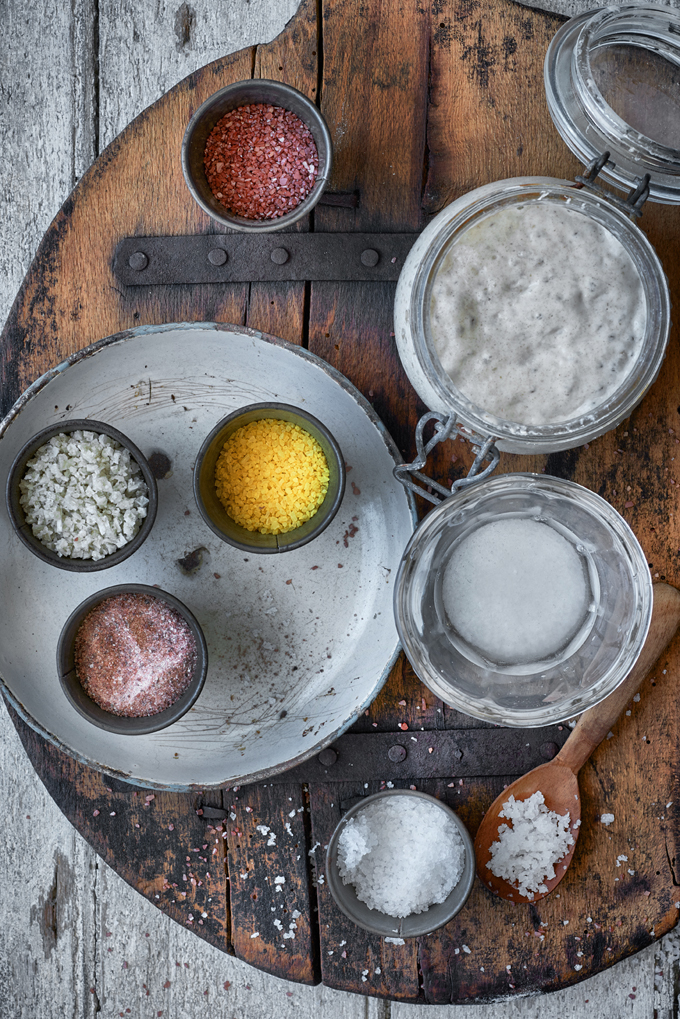In 2015 I wrote the feature below. The information stands, and I hold with artisan bread being made with artisan ingredients. Of course a year or so late I created the Sourdough salt as a product, which is still everyones favourite salt to make sourdough with, but I want to update a few things on this post.
Baking sourdough bread is part of the rhythm of life. I love how sourdough connects us with the food that nourishes and sustains us as we go about our daily lives and from the moment that I decided to become part of the food movement I realised that that to bake the most delicious, nutritious, and sustainable bread I needed to look at every aspect of it. Artisan bread starts with artisan ingredients. Honest ingredients that have been made and grown with respect and love. The flour has to be organic, the water chlorine free and the yeast had to be sourdough, and so it follows that the salt in sourdough also has to be artisan.
Not only is artisan salt the most ethical and sustainable kind of salt to bake with it is also the most nutritious. You can literally see the minerals in the wonderful iridescent crystals, making may of the salts pink and red and grey. Artisan salt tastes wonderful too. Sea salt is full of iodine and no only can you see that the salt is unrefined but you can really taste the difference.

Saltmaking was, up until the industrial revolution, an artisanal craft. The industrial revolution and advances and mechanization meant that production increased rapidly over the last century to meet the demands for industrially produced salt, not just to clear icy roads, but salt also sets the dye in fabric and is used to produce glass, polyester and plastics. Salt in it’s pure form is sodium chloride, and is also used to clean gas and oil wells and is an essential component in manufacturing paper, brass, bleach and tires. It is also this pure form of sodium chloride that is added to food.
Salt does more than improve flavour. It intensifies it. It reduces bitterness in food and enhances the sweetness and provides balance. It aids in gluten development in bread making and acts as natural preservative, and amazingly, it does all of this without adding any calories. Sodium chloride, however, is a refine product, which is devoid of any minerals and is manufactured, in many cases with no regard for the environment. So this video explains why table salt, manufactured by chemical conglomerates has no place in my bread.
For those people who are thinking that those kinds of salt is simply for food snobs and wealthy people who can afford it, a simple Google search shows Himalayan Rose Pink Salt Coarse 500g priced at £2.25 that is 50 loaves – that is almost a years worth of bread. I’d say that is affordable for most people.





 The Grain Divide
The Grain Divide
What brand of salt do you use for sourdough bread? Thanks!
Hi Tracy here is the salt we use and there is a link in the description to the company Halen Mon who make it for us https://www.sourdough.co.uk/courses/sea-salt-sourdough-bread/
Best Lucy
Would you grind the sea salt or just use the flakes? Does it matter?
HI Elvira you can use either ground sea salt or flakes – either way they must dissolve easily in a small amount of water so that you can add to your dough without having undissolved pieces of salt.
Best
Lucy
I’m less than convinced by this one. Yes it feels good to use “artisanal” salt, but in reality the price of many such ingredients is silly to say the least, and the benefits to your diet infinitesimal. I frequently use Sel de Guerande which is not that pricey in France, but I often wonder what percentage of seagull poo is present. I’d opt for a supermarket “sea salt”.
Hi Mike,
Sea salt is good as it contains lots of minerals. A recent National Diet and Nutritional survey I read highlighted that certain minerals are seriously lacking in the diet of the general population in the U.K. ( particularly magnesium – in fact another report suggested that 7 out of 10 women in the UK are reported as having an inadequate intake of this important mineral. Along with zinc this is the most frequent mineral deficiency found in the UK population. )
The combination of intensive farming methods, over the last 70 years and use of chemical fertiliser has depleted the soil of it’s mineral reserves, and as a result wheat, along which many other foods,) is less nutritious. Couple that with the short fermentation process, and roller milled white flour means that much of the industrially produced bread being sold today is low in micronutrients. (Long slow fermentation allows us to access more of those micronutrients in bread.)
For me though, it is about the base line integrity of my bread. I take the time to search out the most local and ethically produced flour, and like to serve my bread with seasonal and sustainably produced food.
I believe that we can change the world through small actions everyday, so using a small amount of artisan salt is part of my core values.